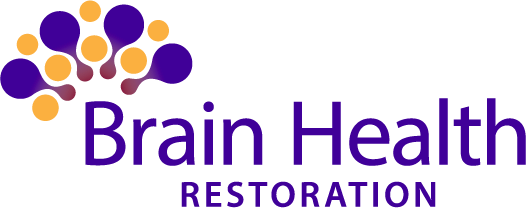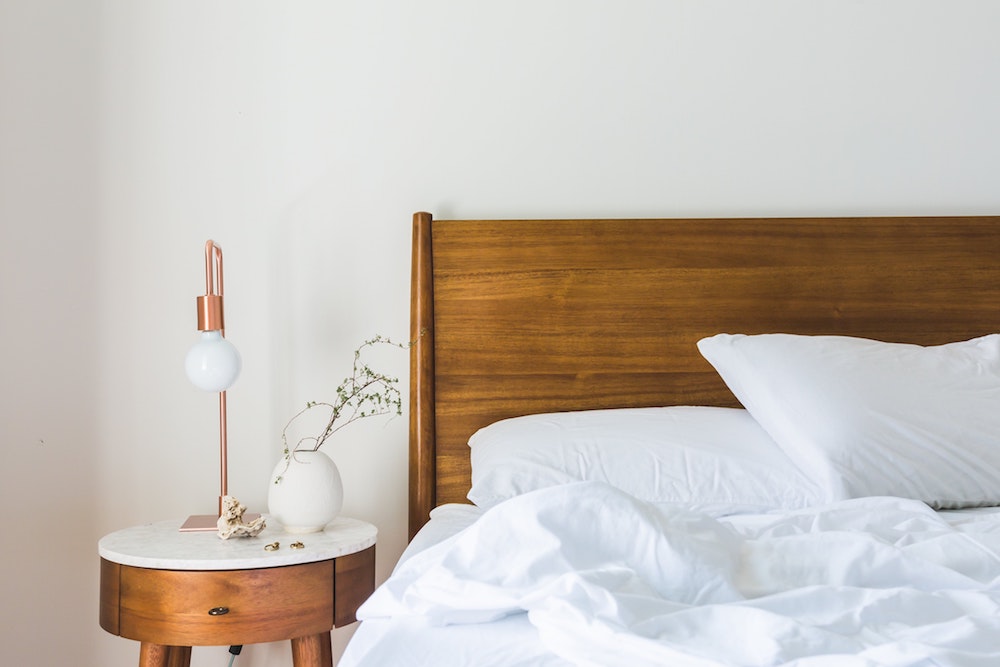Everyone suffers from a sleepless night of worry or a late night out once in a while. Perhaps there is a looming work deadline, or your children are having their own hard night up ill or maybe you were out with friends having a terrific time and lost track of the hours. It happens. Brain Health Restoration recommends following the Somnia Sleep Protocol so waking up isn’t a struggle.
But even just one night of fewer than 7-9 hours of quality shut-eye can have the following effects: your blood sugar is less controlled, reflexes slower, blood pressure higher, you are more hungry and cranky, your ability to problem-solve is decreased as is your immune system.¹
What are the Risks Associated with Sleep Deprivation?
Although our bodies generally do bounce back from short-term disruptions after a few days of normal rest periods and healthy lifestyle choices, there is a cause for concern – especially when the trend becomes long-term Insomnia.
The risk factors mentioned above can result in a variety of chronic diseases – both physical and mental – which prove detrimental to health.
Over the past 10 years, researchers have stated that there are significant effects on your health due to sleep loss, apart from lethargy throughout the day. A report published by the National Center for Biotechnology Information noted the very harmful effects that the lack of sleep has on the nervous, cardiovascular, immune, and endocrine systems. If you are interested in learning more, you can check out the rest of the NCBI article here.
In addition, there is a clear correlation between cognitive decline and long-term sleep deprivation. After one night of poor sleep, you understand how hard it can be to focus or make good decisions. Imagine your brain health and function after weeks, months, or even years of sleep difficulties.
Where Do I Find Help?
According to a recent Mayo Clinic Minute, “The CDC says 1 of 3 adults doesn’t get enough shut-eye.” The actual members of Americans affected are between 70 and 80 million. Each of these tired people could have any one of 70+ recognized sleep disorders.
If you count yourself as one who is experiencing long-term sleep deprivation or poor sleep, it is recommended that you seek help. Insomnia treatments should start with a physician knowledgeable in sleep disorders.
Your physician may order a polysomnography, a study in which your sleep will be monitored for a night to help diagnose sleep disorders difficult to diagnose during waking periods. This non-invasive procedure will gather data on your sleep patterns, heart and breathing rates, oxygen levels, and disruptive behaviors through EEGs and other monitoring systems. Based on that data, a course of action will be prescribed.
The Somnia Sleep Protocol
Lifestyle Changes
Healthy lifestyle changes that help promote good sleep include daily exercise, healthy eating, avoiding alcohol and large meals close to bedtime. Many have found that practicing meditation and mindfulness, yoga, connecting with nature and disconnecting with screens (at least 2 hours prior to bedtime) helpful too.
Morning Light
Setting your circadian rhythm for optimal sleep is an easy and natural remedy. To do this, expose yourself to unfiltered natural light (outdoors with no eyeglasses, sunglasses, or contacts) for at least 45 to 60 minutes in the morning between the hours of 7:00 am to 11:00 am. This will start a complex biological process that culminates in the release of melatonin approximately 12 hours later leading to drowsiness.
Sleep Aides
Generally, over-the-counter and prescription sleep drugs may be helpful, but they are meant to be administered as occasional or very short-term solutions due to the list of side effects and the potential addictive qualities of the medications.
Do You Struggle With Sleep?
If you suffer from lack of good rest and the aforementioned symptoms, know that you are not alone and there are a lot of great resources available. The importance of quality sleep on your overall mental and physical health depends on you taking action today starting with the Somnia Sleep Protocol. If you are still struggling to get a goods night rest, get in touch with Brain Health Restoration to find the root of your problems.
Sweet Dreams to All.
¹Pathak, Neha. “What Getting No Sleep Does to Your Body.” WebMD, Web MD, 6 Feb. 2019, https://www.webmd.com/sleep-disorders/sleep-science-19/health-affects/graphic-sleep-deprivation.
Note: Brain Health Restoration’s (BHR) MeRT℠ Protocol has been shown to benefit sleep.
Our brain health clinic augments the morning light process with a 30-minute gentle, non-invasive, pain-free treatment series using Magnetic e-Resonance Therapy (MeRT℠). MeRT℠ is a personalized brain therapy protocol that works to optimize brain function and improve neural communication. For more information on how we might help you, please contact us via phone or email.

